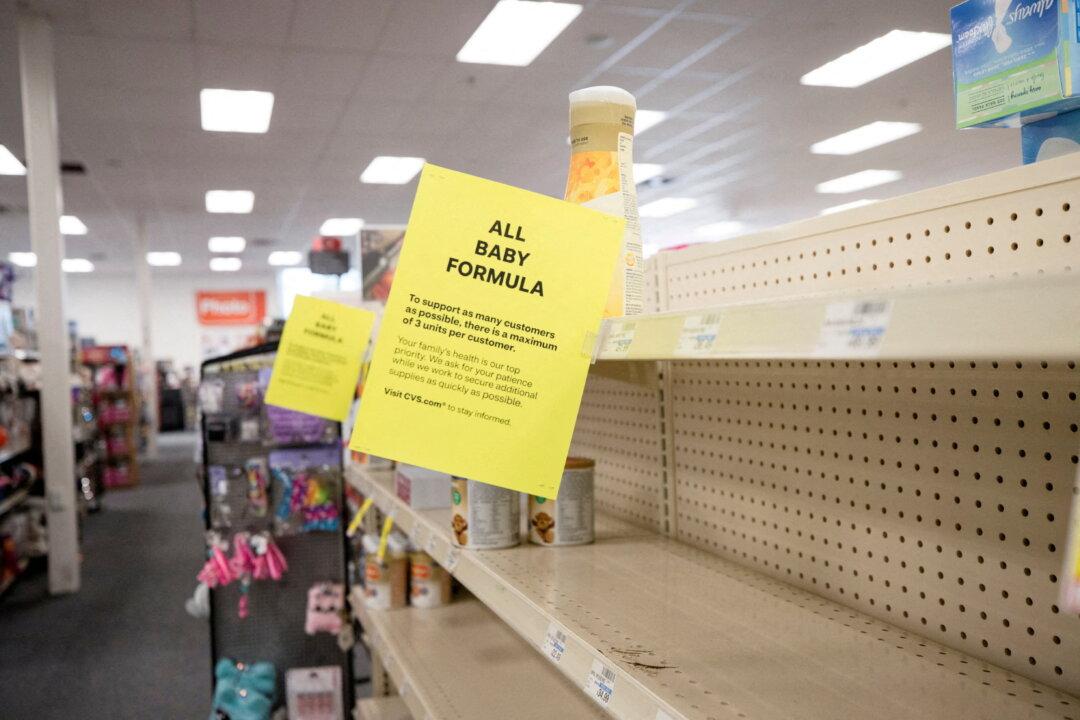The U.S. Food and Drug Administration’s (FDA) initial response to complaints about Abbott’s infant formula plant was “too slow” and some decisions could have been “more optimal,” the FDA’s top official said while facing a grilling from lawmakers on Wednesday.
FDA Commissioner Dr. Robert Califf appeared before a congressional panel to answer questions about the FDA’s handling of events that led to the biggest infant formula shortage in recent U.S. history after Abbott in February recalled some products and closed its Sturgis manufacturing plant.





